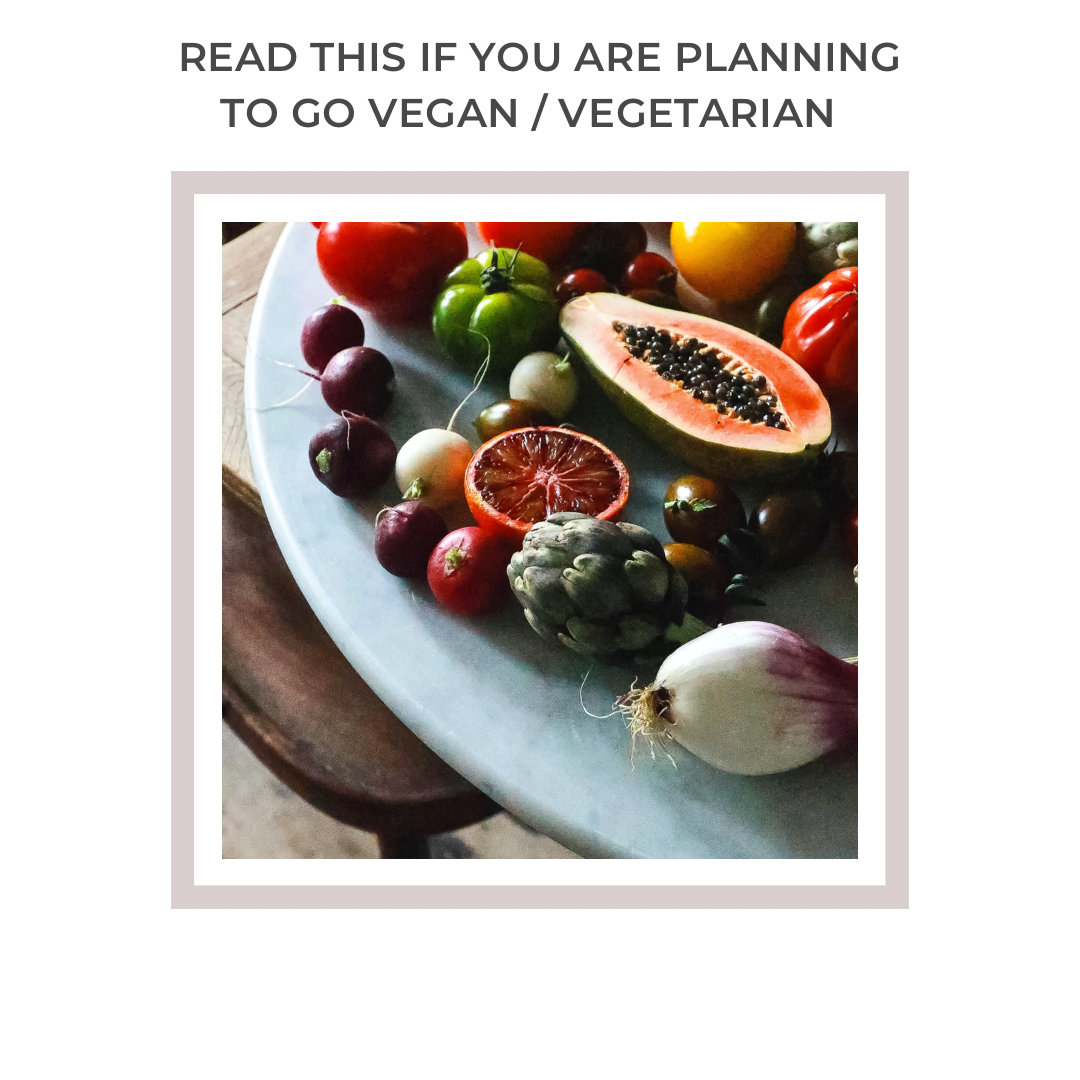Going Vegan/Vegetarian - What Should We Watch Out For

VEGANUARY??
A lot of us go vegan during January which is beneficial for the body. However you should be careful about adequate nutrient intake if you are following a vegan/vegetarian diet. Which nutrient deficiencies should we look out for?
?VITAMIN B12 - Main source is animal produce. Plant based sources are algae, soya, yeast extract (eg marmite), some fortified cereals. It may be a good idea to take B12 supplements.
?IRON- Main source of iron is meat. Although a lot of veggies & fruit contain iron, it is of a form that is harder to be absorbed by the body. Hence vegans/vegetarians need to be mindful about their iron intake. Great plant sources include lentils, beans, peas, green leafed vegetables, nuts, dried fruit and oats. Females tend to have lower iron levels so in some cases supplements may be necessary. To absorb iron maximally, take it with/foods containing vitamin C.
?CALCIUM - Main source of calcium is said to be dairy however there are a number of other calcium sources such as broccoli, green leafed veggies, almonds, figs, oranges, sesame seeds and tahini. Calcium deficiency can cause bone related issues.
?PROTEIN - Animal-based foods offer complete protein with all the essential amino acids. Although there are plenty of veggie foods containing protein very few of them have the essential 9 amino acids that meat contains. Hence it is important to eat the correct pairings such as beans with brown rice. Lentils, chickpeas, tofu, tempeh, nut and nut butters are some other good ones. Quinoa, buckwheat and spirulina are the few complete plant based proteins!
?OMEGA 3 deficiency is another common issue. Main source of Omega 3 is fatty fish such as salmon, mackerel. It is not easy for the body to convert plant-based omega 3 into a form that it can absorb well. If you are supplementing check the DHA levels. Plant based omega 3 sources include chia seeds, walnuts, flaxseeds, hemp seeds and Brussel sprouts.
?WATER - Vegetarians and vegans tend to eat more fiber hence may need more water intake to avoid dehydration and allow fiber to move through the digestive tract so it doesn’t cause bloating
Hope you find this helpful!
Credit: Sabrina Ovadya-Lenson



